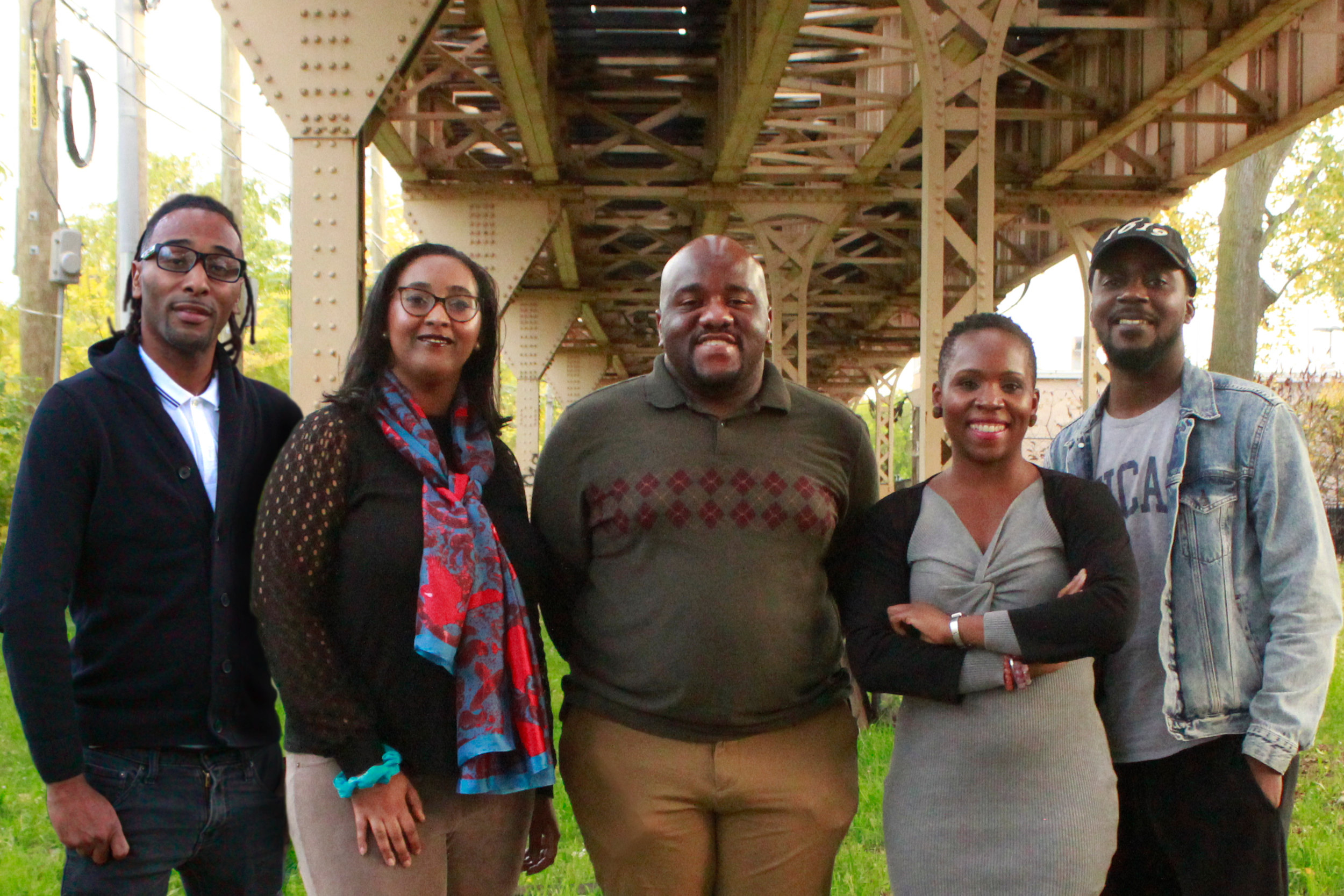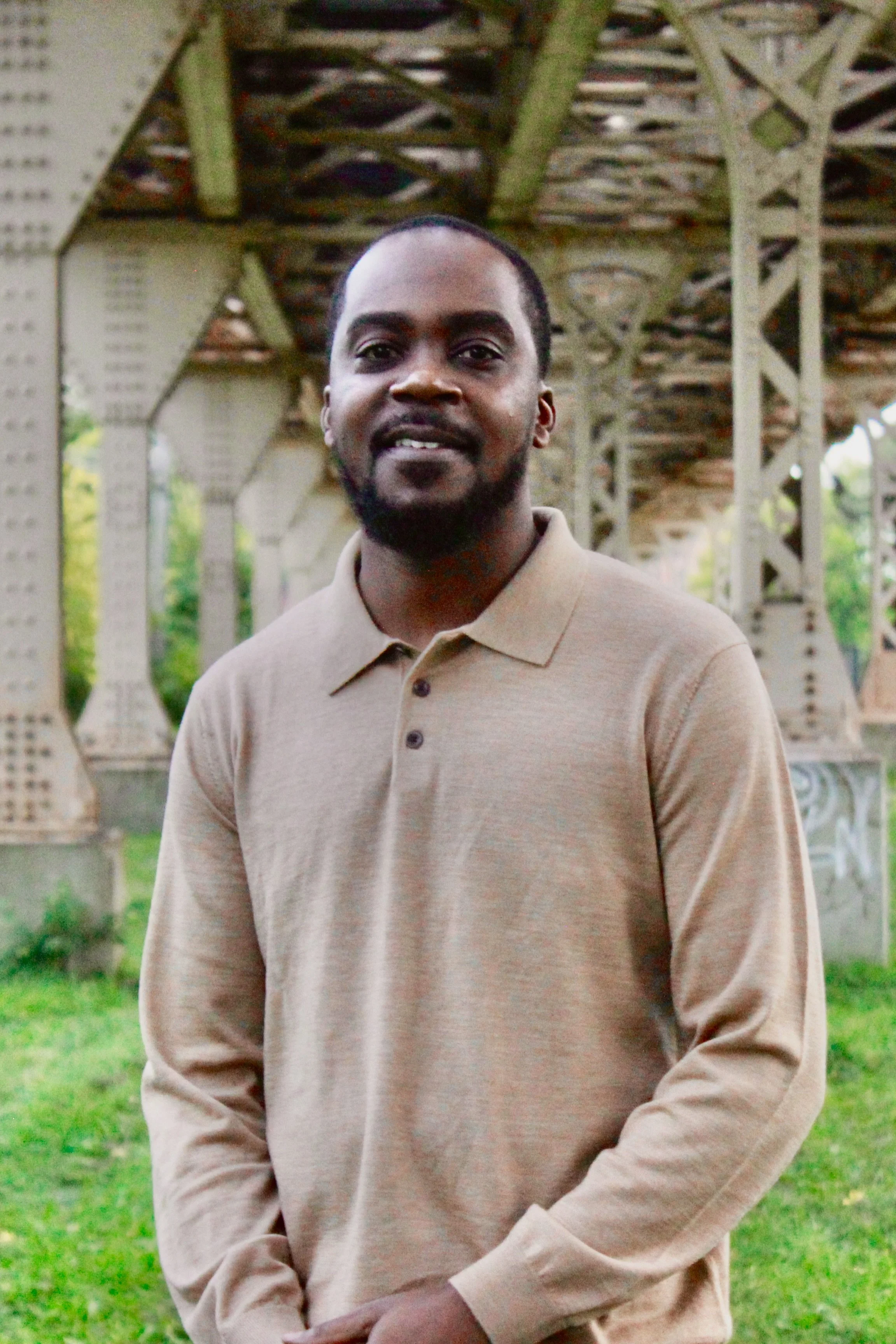Led by City Bureau’s engagement reporter Jerrel Floyd, four emerging reporters are looking into affordable housing in Bronzeville. Community members posed the question of how to find places to live in their long-time neighborhood without breaking the bank. Check back here to see what we find.
A Tale of 3 Bronzevilles: How Residents’ Lives are Shaped by Affordable Housing
As homelessness reaches record levels in Chicago and across the U.S., a dire need for housing has a drastic impact on the lives of three Bronzeville residents. Read the story.
Bronzeville’s future as a real estate ‘gem’ threatens its legacy as Chicago’s Black Metropolis
Longtime residents and advocates look to affordable housing plans and intentional investment to keep the celebrated Black neighborhood Black. Read the story.
Q&A: How Can Bronzeville Residents Avoid Displacement?
With an eye toward history, Jessica Merritt is researching how neighbors can best navigate housing Bronzeville’s shifting landscape. Read the story.
Q&A: When Affordable Housing and Accessibility Intersect
As a Chicago-based advocate for people with disabilities, David Zoltan knows firsthand how hard it can be to find housing. Read the story.
Q&A: Bronzeville Resident Invests in Economically Diverse Homeownership
Sheila Dantzler, a Bronzeville real estate agent and developer, aims to provide quality housing through her nearly two decades of work in Chicago. Read the story.
Q&A: Keeping Black Wealth in Bronzeville
As part of our coverage on housing in Bronzeville, Lionel Kimble Jr. discusses what happens when Black people are priced out of Black neighborhoods. Read the story.
Who Are We?
City Bureau Civic Reporting Fellows spend 16 weeks improving their journalism skills and immersing themselves in community reporting. (Staff photos by Ariel Cheung/City Bureau; cover photo by @vxla/Flickr)
Troy Gaston
by Nicole Johnson
The Robert Taylor Homes were Troy Gaston's first teacher. Now, as a City Bureau fellow, he's ready to tell the world what he has learned.
“Housing is a fundamental pillar of equity for all people,” Gaston says. His goal for the four-month fellowship program is to couple this belief with his penchant for research that can be applied to solve real-world problems and inform public policy.
A Chicago son, Gaston is also a scholar — currently pursuing his doctorate in political science at the University of Illinois at Chicago — and a Black Lives Matter organizer. He hopes to leverage his City Bureau experiences to disrupt the language media uses to portray lives of those whose narratives are forgotten in traditional outlets.
As an organizer, Gaston played a pivotal role in passing the Empowering Community for Public Safety ordinance, which implemented civilian oversight of the Chicago Police Department. He has also advocated for other policies to improve the lives of disenfranchised people, such as increasing the minimum wage, and ensuring members of the LGBTQ community have quality health care.
He looks to his work at City Bureau as an opportunity to carefully curate a narrative that shows the humanity of people facing environmental and housing injustice.
Gaston hopes to take his learned lessons and transform them into ideas that can change lives.
Nicole Johnson
by Troy Gaston
Nicole Jeanine Johnson is a writer and activist rooted in the vibrant community of Englewood. With a deep dedication to empowering her community, Johnson encourages individuals to embrace their roles as storytellers, recognizing the power and significance of their narratives.
Her multifaceted career has been rooted in education and public policy. Johnson holds a bachelor's degree in political science from the University of Michigan, where she honed her understanding of social dynamics and systemic issues. She also earned a master's degree in education policy.
As an emerging multimedia journalist and freelancer, Johnson believes in preserving authentic voices, which she said aligns with the values at City Bureau — ensuring the rich tapestry of her community's experiences remain intact for generations to come.
Her commitment to uplifting Black marginalized voices is deeply personal, intertwined with her family, community and educational background. She recalls her grandmother had a shop full of Ebony and Jet magazines that featured “beautiful Black women all over the pages” who made historical contributions in activism and social change, serving as a reminder of their enduring legacy.
“Women who look like me have been doing this work all along,” Johnson says.
Reema Saleh
by Ahmad Sayles
Reema Saleh is the quintessential renaissance woman. She’s a writer, podcaster, researcher, photographer and storyteller — and she’s just getting started.
Originally from South Carolina, Reema has dedicated her career to telling stories about how public policy affects people’s lives. The University of Chicago graduate studied public policy and creative writing, focusing on immigration and international migration policy. Her work spans from humanitarian response work with the U.S. State Department to producing “Root of Conflict,” a podcast at the University of Chicago.
As a freelance writer with work in South Side Weekly, the Chicago Reader and other publications, Saleh wants her storytelling to foster empathy and educate the public.
Believing journalism can be extractive at times, Saleh wants to amplify the voices of Chicagoans and draw attention to issues that shape people’s lives on the South and West sides of the city. Her commitment to nonprofit, local journalism and interest in a newsroom that has existing relationships with the community is what brought her to City Bureau.
During her fellowship at City Bureau, Saleh says she plans to learn the ins and outs of journalism. She believes developing skills in solution journalism and accountability journalism will facilitate her continuing to create stories that help inform Chicagoans and lead to societal change.
Ahmad Sayles
by Reema Saleh
Ahmad Sayles first got into journalism in 2019, when political discourse made him feel the field was under attack. It all clicked at one of City Bureau's Public Newsroom conversations on restorative justice and how to build communities of care.
"It was important for me to not talk into the void and meet with people discussing these solutions,” Sayles said. “It was one way to find a community of people who were like-minded about the issues affecting our neighborhood.”
For the past four years, he has covered City Council meetings as part of the Documenters Network, the City Bureau-powered program geared at strengthening the public record of governing bodies. He returns to the City Bureau fellowship program after his 2021 experience focused on environmental justice and organizing on Chicago’s Southeast Side. His journalism work has shown the importance of connecting present-day issues to the chain of historic events that brought them about, he said.
“[There is] a lot of built-in history of why things are the way they are,” he says, so exploring the past “is educational for people following us, but also educational for me.”
To Sayles, City Bureau's grassroots approach aligns with his own values, because its journalism centers Black and brown communities. As a fellow this fall, he is excited to sharpen his skills and expand his journalism portfolio.
"I want to gauge where I want to go and my career — do I want to be more involved on the journalistic side covering the issues, or do I want to be more so on the inside, helping create policy?" he said.
Jerrel Floyd
by Sarah Conway
Jerrel Floyd feels his roots in small-town Alabama in Black Chicago from the way that people walk down the street to catching a family relaxing on the stoop. Sharing Black stories is exactly what brought him here – documenting living history through communities telling their own stories.
“People want to be storytellers about where they come from, how they feel about their lives. They want to tell their individual stories,” he said. Inquisitive, thoughtful and perceptive, Floyd creates space in his reporting for communities of color to explore memory and process how systems impact their daily lives.
Floyd found his footing in journalism as a reporter and editor as an undergraduate at Morehouse College’s student newspaper, The Maroon Tiger. He began his career at ProPublica Illinois as a reporting fellow where he explored the powerful histories of abandoned black cemeteries, an interest sparked during his graduate studies in investigative journalism at American University where he collaborated on projects with PBS Frontline and the Washington Post.
Before City Bureau, he was as a local government reporter with the Post and Courier in Charleston, South Carolina, covering a broad range of topics from growth and development to education and health. He brings eight years of reporting experience to his work as an engagement reporter covering affordable housing, development and food access, a beat he anchors in connecting communities with resources and ultimately building their own narratives.
Have Your Say
Do you have questions about affordable housing in Bronzeville and across Chicago? Or want to share a tip? Reach out via email at tips@citybureau.org. You can also leave a voicemail or text message for us at 312-361-0881.













